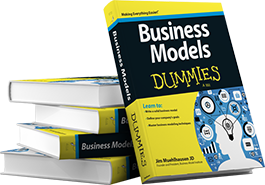Is the Banking Business Model in for a Shift?
You may have noticed Ally Bank, Discover, Chase, and others promising a computer-free, and, in some cases, foreigner-free customer service experience. Discover card is moving customer service to Utah. Chase promises that you will get a person not a machine on the phone.
Let’s call this an attempt by the financial services industry to win customers with an improved customer service experience. These changes dramatically increase the cost structure of the banks- human attendants vs. free machines and higher-paid U.S. workers vs. Indian or Pilipino.

Clearly, the logic behind these changes is that customers are fed up with machines and bad customer service and that fixing it will yield additional customers. Will this happen? Let’s explore the potential options:
- Financial institutions have continued to wring cost from the system to the point of excess. By correcting the over-swung pendulum, customers will migrate to the innovative companies that are improving service.
- Financial institutions removed service cost to benefit customers. The cost of customer service exceeded the benefit perceived by the customer. Customers may not like dealing with a machine or someone speaking Chinglish, but it beats increased fees. If this is true, the increased customer service offered will have little effect as consumers vote with their wallet. After all, the credit card will still work even if customer service stinks.
- There may be a hybrid business model available. Cheap, automated, and inexpensive customer service for one set of customers and more expensive service for others. Airlines, banks, and retailers already do this for VIPs. Perhaps a business model with another tier of quasi-VIPs could be created from customers willing to pay a bit more for better service.
- Is there an opportunity to go in the opposite direction? Could even less customer service provide an opportunity? This is probably the least attractive option, but there are probably customers saying to themselves, “Why do I care about better customer service, I haven’t talked to anyone in twenty years?” Could a bank use a business model that lowers the bar on customer service and find a niche?
- Increase the Americanizing of the off-shore customer service. Is the issue that Americans simply don’t like dealing with foreigners or that they cannot understand them. If bank customer service was off-shored to the United Kingdom, would there be an issue? One could make an argument that the significantly lower cost of operating offshore could justify American dialect, culture, and language classes. Banks could heavily screen all employees and refuse to put anyone on the phone if they could not have an excellent understanding of U.S. language and culture. My instinct says that American’s issue is a language one, not a disdain of foreigners.
Which of these options do you think is best? It will be interesting to see the outcome of these bank initiatives. These institutions are doing all businesses a favor by helping us answer the question, “Will customers change vendors or pay more for better customer service.”
Do you think customers will pay more for better service from their bank? Does this alter the banking business model?
Non-Traditional Financing for Your Small Business
Guest post by Sara Mackey
With commercial banks and other traditional lending organizations cutting significantly back on financing small business, other alternative and non-traditional funding has become a necessity when considering your business model. By exploring the different types of alternative business financing options available, you can be sure that you are choosing the best choice for your small business.
Government or SBA-backed Loans
Both federal and state governments have programs guaranteeing micro loans for startup small businesses. These programs work much the same way as the Small Business Administration does. They do not provide the financing in and of itself, but it does back your loan which makes you a more attractive borrower for lenders. Micro financing is a viable solution for business that need seed money, to increase their cash flow or for businesses that do not qualify for a traditional bank loan. There are also grants available through federal, state and local governments for small businesses.
Angel Investors
Angel investors are private entrepreneurs using their own funds to finance a business in the form of an investment. Angel investors are often more patient and willing to make longer-term investments than other types of financing. Angel investors usually assume partial ownership of the business which may seem like a downside to some, but they also bring in their business connections and can offer an already established network.
Asset-Based Financing
If you already have an established business, you may be interested in funding your financial need with your assets. Asset-based financing is obtained through collateral using your assets such as fresh account receivables, real estate, equipment or inventory. Many lenders tend to look more favorably at providing financing for receivables as they can be liquidated faster than other types of assets. This is an optimal option when you have your business model in place.
Factoring
Factoring is similar to asset-based financing with account receivables, but rather than getting a loan based off their worth, they are sold to a company (known as the factor) for cash. The factor buying the receivable is then responsible for collecting on them. This takes the risk out of obtaining a loan using your assets and gives you more control over which ones and how many to sell.
Credit Cards
According to the National Small Business Association, over forty percent of small businesses use credit cards to meet their financial needs. Credit cards are easily accessible, available when they are needed and can strengthen a business’s credit score when the payment terms are met. However, if you are already struggling to pay the company bills, a credit card is the last option you want to use. Beware of taking on too much debt that deviates from your business model.
Merchant Cash Advance
A merchant cash advance provides funding based on future credit card sales rather than past credit history. The funding is repaid through a percentage deducted from each credit card transaction. While the interest rate tends to be higher on a merchant cash advance than traditional small business loans, it is still a great option for many small businesses.
While there are many other types of non-traditional financing available for your small business, these are the most common options and can provide the working capital your company needs.
Can Doing Good be GOOD for Your Business Model?
Nice guys finish last. It’s a dog eat dog world. Kill or be killed. All these phrases are heard in the business world. Personally, I do not believe it is a dog eat dog world. I believe the best business is based upon positive relationships and win-win deals.
While nosing around Facebook, I noticed a game called A Better World, so I checked it out. More of a space for positive energy than a traditional game, A Better World allows users to express gratitude, share positive messages, as well as simply hang out in a positive space. I found it refreshing that someone has taken the lessons that so many of the self-help gurus preach, and made them easier to execute.
For instance, many positive attitude experts say to express gratitude to attract more good things into your life. However, how does one do that? Not everyone has a suitable person or avenue available. A Better World provides people with a public forum to express gratitude and share positive energy. For many, this is a much-needed service.
The real question is: Will A Better World’s Positive Business Model translate to business success? Most current Facebook games focus on quick-hit entertainment. In fact, the average Facebook game user spends less than two minutes per game use. A Better World is trying to buck this trend by focusing on a segment of the market which is virtually untapped: positive energy non-core gamers.
Nintendo’s Wii has already proven that a solid business model can be generated by creating a gaming platform for traditional non-core gamers. Can A Better World pull off a Wii Version 2?
With 500 million Facebook users, it seems plausible that A Better World has a market segment large enough to thrive. The most interesting aspect of the Better World business model is the monetization potential. Popular games like Zynga’s Farmville have broad audiences across many age groups; in particular, kids enjoy playing Facebook games like Farmville.
As exciting as having millions of users might be; free child players are not the real market. The real market is the upsold virtual goods buyer. The monetization model for Facebook games is to allow free play for all uses and then to augment the playing experience with a variety of virtual goods. These virtual goods are typically the primary revenue source. However, only 8% of social gamers convert to virtual goods buyers. A Better World has the potential to improve upon this low 8% conversion rate. A Better World clearly caters to an adult market. In particular, adults over the age of 25 with jobs, credit cards, and disposable income. A Better World has the potential to capture more than the traditional 8% upsell rate.
Most Facebook gaming companies are privately held. However, market capitalization for Facebook game developers is sky-high. Even with upsell rates of only 8%, companies like Disney are paying in excess of twenty times sales for successful game developers. If A Better World can successfully monetize their older Facebook demographic, they may be able to push this multiple even higher.
As A Better World has just officially launched, it will be interesting to see if the game can capture a large share of the Facebook community. Do you think a positive message game can succeed on Facebook? Do non-traditional games like A Better World help Facebook’s Business Model or hurt it?










